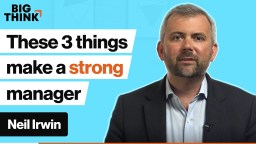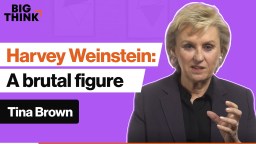AARON HURST: I think we're recognizing more and more the importance of values. And when you ask people about their preferences for work and where they want to work, they often cite they want a company that has strong values that are aligned with theirs. So you see more and more CEOs, more and more leaders, investing in the articulation of their corporate values.
You see consulting firms making millions of dollars helping organizations, you know, define their values. What we're seeing consistently is this is not working. What's happening is CEOs are defining the values of the organization. They're putting them on a beautiful poster boards. They're putting them on websites. They're promoting them out there. They might be getting on a stage at a large conference for their employees and sharing the values and sharing why they matter to them. Maybe they're going down to that next layer of leaders and saying, we really want you to connect to these values. We want you to be able to tell stories about why those values matter to you. But even still, at that point, you're not getting the values lived by the organization.
The majority of people can't name the values of their company, much less actually be able to figure out how to change their job to align with those values. If you truly want to bring your values as an organization to life, everyone in your company needs to be able to tell stories about how those values show up in their daily job. If inclusion is one of your values, every employee needs to say, 'How does that show up on my job? Why does that matter to me?'
You know, if integrity is a value of your company, every employee needs to be able to articulate how that shows up in their work. And this is not as challenging a process as you may first think. The simple process of connecting your employees in pairs and having them talk about how has a given value shown up in their career, what does it mean to them?
Maybe the two of them think about that in a different way. And they can actually have a really meaningful conversation about what integrity means to you versus them. That helps them truly understand what that value is. And then to see: How does it show up in their job today and how could they do more around that value?
So picture in one hour if every employee in your organization sat down with a colleague and had a conversation about one of your values, and really went in-depth, and talked about how they see it differently, how it shows up for them, how they plan to build it into their work, how that one hour would completely transform your organization.






